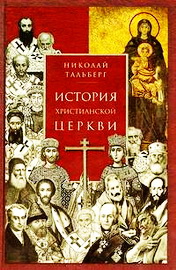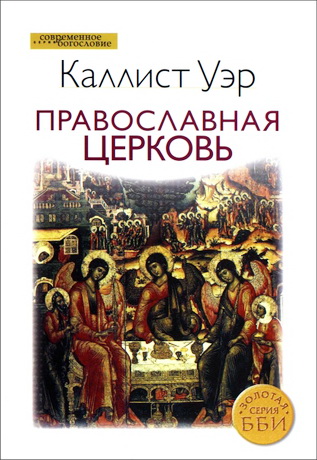
LaFollette - Persson - Blackwell Guide to Ethical Theory - модуль BibleQuote
Hugh LaFollette and Ingmar Persson - Blackwell Guide to Ethical Theory
Malden, MA: Blackwell Publishing, 2013. – 520 p.
ISBN 978-1444330090
Contemporary moral philosophers entertain theories about human nature, explore the nature of value, discuss competing accounts of the best ways to live, ponder the connections between ethics and human psychology, and discuss practical ethical quandaries. Broadly conceived, these are the same issues ancient philosophers discussed. However, the precise questions contemporary philosophers ask, the distinctions we make, the methods we employ, and the knowledge of the world and of human psychology we use in framing and evaluating ethical theories, often only faintly resemble those of our philosophical predecessors.
Nonetheless, current ethical theories are shaped by our predecessors. We wrestle with the questions they posed. We ask the questions we ask, in the ways we ask them, because of their philosophical successes and failures. Their debates were likewise shaped by the questions posed by their predecessors. The connection between our, their, and their predecessors’ questions explains why we have a history of ethics, why we all participate in the same debate. The differences between their debates and ours reflect the ways ethics has evolved. This is as it should be: the debates are similar because we are all looking for better ways to relate to each other; different because with time and the benefits of hindsight, we should better understand ourselves, our place in the world, and our relationships to others.
We can divide their questions and ours into three broad categories: metaethics, normative ethics, and practical ethics. Here are examples of each.
Metaethics: What is the status of moral judgments? Are they statements of fact or expressions of attitudes? If they are statements of fact, are these facts subjective or objective? Are they statements about a normative or evaluative realm distinct in kind from the natural world? Is moral agreement possible or do we land in relativism?
Normative ethics: What is the best way, broadly understood, to live? Are there general principles, rules, guidelines that we should follow, or virtues that we should inculcate, that help us distinguish right from wrong and good from bad?
Practical (or applied) ethics: How should we behave in particular situations: when should we tell the truth, under what circumstances can or should we go to war, what is the best way to organize society, how should we relate to the environment and to animals?
The first part of this book contains essays in metaethics and moral epistemology: they discuss the nature and status of ethics and our knowledge of moral matters. The third and largest part contains essays in normative ethics: they offer competing accounts of how we should live. In-between them there is a part with essays on factual matters of relevance to ethics, such as how the psychology of beings must be if they are to be capable of developing and following ethical norms. It must arguably be such that they are capable of being responsible for their actions and being altruistically motivated. This book does not cover practical ethics.
Kantianism
Thomas E. Hill Jr
Among the most basic ideas in Kant’s moral philosophy are these: that moral philosophers must use an a priori method, that moral duties are categorical imperatives, and that moral agency presupposes autonomy of the will. In the second section of his Groundwork of the Metaphysics of Morals, Kant develops each of these ideas in an argument for his central thesis that the idea that we have moral duties presupposes that we are rational agents with autonomy (Kant 1964; citations to the standard Prussian Academy edition, volume 4 will be included as bracketed numbers). The conclusion and each step of the argument remain controversial. Kant’s admirers usually see here a great advance in moral theory, but critics often find Kant’s contentions obscure and implausible.
When a philosopher inspires such extremes of admiration and disdain as Kant does in his ethical writings, we may well ask ourselves whether Kant’s friends and his critics are focusing their attention on the same ideas. Elementary misunderstandings of Kant’s ethics are common, and serious Kant scholars often disagree about interpretations. Insightful core ideas may be dismissed or ignored because they are conflated with more radical, controversial ideas. My aim, then, is to do some much needed sorting among the doctrines attributed to Kant. What is central, and what is peripheral? What is commonplace, and what is radical? Which assertions are preliminary starting points, and which are more remote conclusions? Considering these questions is necessary for a balanced assessment of the strengths and weaknesses of Kant’s ethics.
In this essay I comment in turn on each of the major themes mentioned above, trying to separate the more widely appealing core points from the more controversial. The modest version of each basic theme, I suggest, leads naturally to the next. Together the steps reflect a Kantian line of reflection for his contention that analysis reveals that the idea that we have moral duties presupposes the idea that we are rational agents with autonomy. To preview, my main suggestions will be these:
(1) Kant’s insistence on an a priori method, in its modest version, stems in large part from his belief that moral theory should begin with an analysis of the idea of a moral requirement (duty). Despite his strong rhetoric about setting aside everything empirical, Kant’s main point was that empirical methods are unsuitable for analysis of moral concepts and defense of basic principles of rational choice. The reason that Kant insisted on an a priori method was not that he believed in rational intuition of moral truths, opposed naturalistic explanations, assumed that duties are imposed by noumenal will, or thought that empirical facts are irrelevant to moral decisions.
(2) Kant thought that analysis of the ordinary idea of duty showed that we regard duties as categorical imperatives. That is, when we suppose that we have a duty we are thereby supposing that we have sufficient (overriding) reason to act accordingly and not just because doing so furthers our (desire-based) personal ends. The modest point here is not that duties must always be experienced as unwelcome demands that must be fulfilled from a sense of constraint. Kant’s point is also independent of his dubious view that substantive principles regarding lying, obedience to law, sexual purity, and so on, are exceptionless and applicable in the same way across all times and places.
(3) The analysis of duty is for Kant merely a step on the way to the conclusion that in thinking of ourselves as having moral duties we must think of ourselves as rational agents with autonomy of the will. The basic point is that in order to be a moral agent, with duties, one must be able to understand and be moved by the sort of reasons that categorical imperatives claim we have. Categorical imperatives are addressed to deliberating rational agents presumed able to follow reasons independent of their concern for happiness and personal ends. To think that we can guide our decisions by such noninstrumental reasons, we must conceive ourselves as agents that implicitly acknowledge and respect the noninstrumental rational standards presupposed by categorical imperatives. As moral agents we might not always live up to the standards that we acknowledge, but our capacity to follow them presupposes that we accept them as rational grounds for our decisions and judgments. More controversially, in regarding our duties as categorical imperatives we presuppose that our disposition to judge our conduct by these basic standards is a constitutive feature of being moral agents, and not something we do because of a prior commitment to following external authorities, tradition, or common sentiments. In a sense, then, particular duties can be understood as requirements that rational agents impose on themselves, and following them is a way of being self-governing.





Комментарии
Пока нет комментариев. Будьте первым!